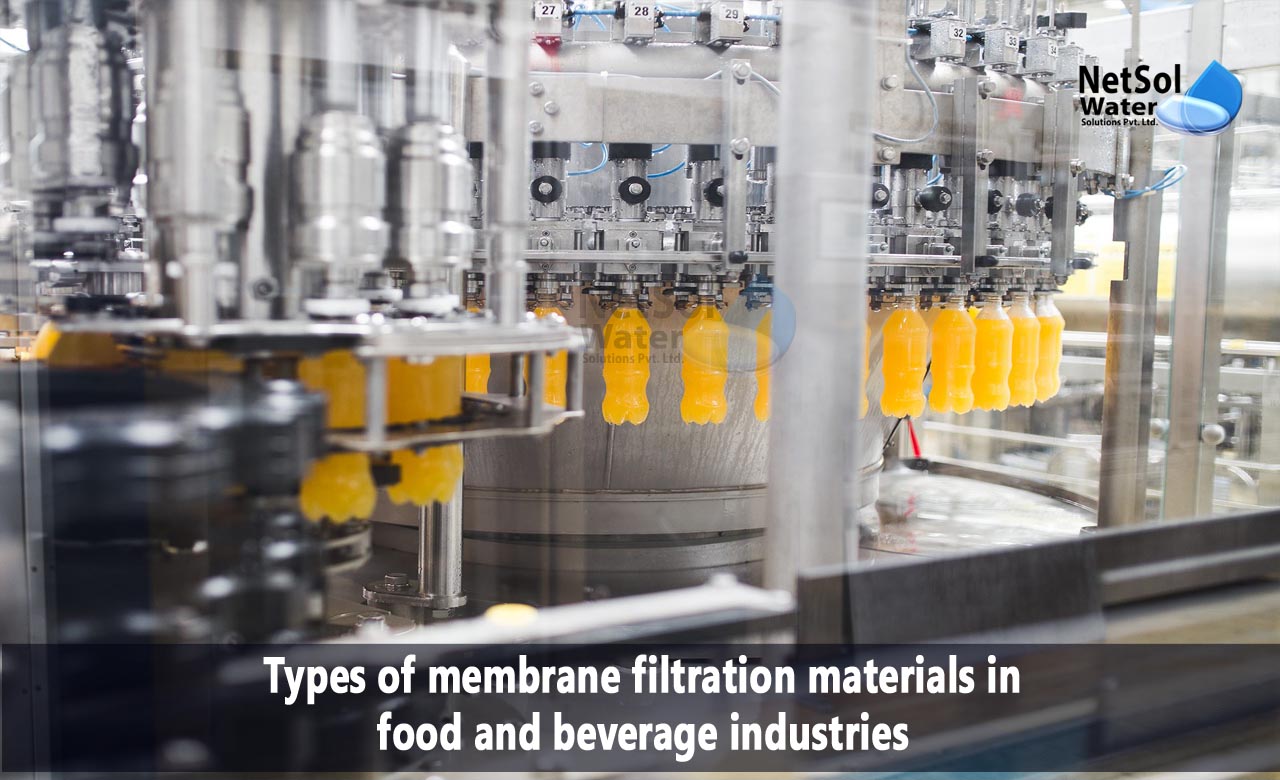Types of membrane filtration materials in food and beverage industries
Membrane filtration is a widely utilized technique in the food and beverage sector, to boost the value of various dairy and plant-based products and make water reuse easier.
Membrane filtration like Reverse osmosis plant is used to create a variety of goods, including yoghurt and whey protein concentrate. Additionally, it is employed to concentrate plant-based proteins and recover water for later usage, from fruit and dairy products.
Depending on the manner of membrane filtration, different types of materials are employed. Here, we'll examine the types of membrane filtration materials used in food and beverage industries, and how they contribute to membrane filtration.
Materials for membrane filtration
The following synthetic materials are utilized in membrane filtration:
1: Polyethersulphone (PES)
PES is a naturally hydrophilic membrane that wets out rapidly and fully, allowing for speedy filtration at high throughputs and better flow rates. The PES membrane also has very little affinity for proteins, which reduces the possibility of target analytic binding.
2: Cellulose Acetate
A cellulose acetate filtration membrane has a very little ability to bind proteins. Due to its robustness, heat resistance of up to 180°C and capacity for sterilisation using all membrane filtration techniques, this sturdy material is employed in membrane filters including Industrial RO Plants. When used, its high-strength construction also guards against any integrity loss.
3: Teflon
Teflon filters have billions of small pores that come together to produce a 3D shape resembling a spider web. Teflon is perfect for applications needing non-stick and water-resistant filters, to remove particulate from membrane surfaces due to its porous structure.
This substance has the capacity to gather some of the smallest particles and permits ideal water and air flow for effective filtering.
4: Polyamide
Nylon can effectively filter water and organic solvents since it is hydrophilic and very solvent-resistant. It can be used to isolate single-celled or certain multicellular species, like bacteria and roundworms, due to the material's wider holes.
5: N-Cellulose
Filters made of sterile membranes that are based on cellulose nitrate are frequently used for quality control. These filters can successfully inhibit microbial growth and come in a variety of particle diameters and material combinations. In some filters, cellulose nitrate and cellulose acetate are combined.
The latter might offer more heat stability and higher flow rates. Depending on the filter's colour, it may also offer enough contrast to make it simple to spot and classify microbial colonies.
6: Polycarbonate
Due to its smooth, transparent surface and well defined porous structure, polycarbonate membrane filters are frequently employed for electron or optical microscopy.
RO Plant manufacturers and suppliers
Netsol Water offers membrane filtration products and systems, like commercial RO Plants and industrial RO Plants, to satisfy your fluid separation requirements while adhering to stringent hygienic guidelines. Our membrane filtration systems can filter out particles as small as 0.001 microns and as large as 10 microns. We use long-lasting, simple-to-clean, and low-maintenance materials to build our equipment’s.
In order to create the optimal finished product based on your unique specifications, we cover every stage of the design process. To guarantee you get the most out of your equipment, we also offer installation, training, commissioning, and support. For further information or to make a product purchase, contact us at +91-9650608473 or drop a mail at enquiry@netsolwater.com



